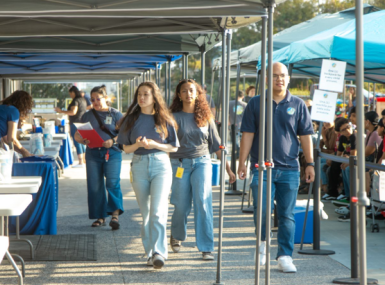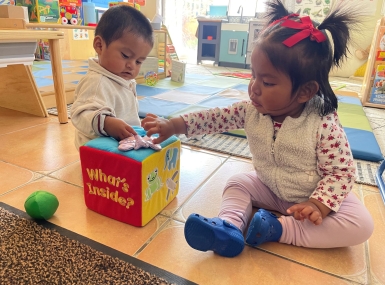New Legislation Would Invest in Child Care Infrastructure and Workforce
Author
Upcoming Events
Related News

Key Takeaways
On June 15, Representative Katherine Clark (D-Mass.) introduced the Child Care is Infrastructure Act (H.R. 7201), legislation that would fund physical improvements in child care centers and provide grants and loans to attract and retain a high-quality child care workforce. The bill calls attention to the critical infrastructure and supply issues facing the child care industry in the wake of the COVID-19 pandemic. With 60 percent of the nation’s licensed providers closed due to the pandemic, one-third of the nation’s child care workers laid off or furloughed and the high cost associated with adapting to new health and safety standards, the child care sector faces a looming crisis that stands to impede our nation’s economic recovery.
While federal child care programs are primarily regulated at the state level, counties can play a significant role in offering child care assistance to low income residents and providing local funding to help build the supply of child care. County governments are responsible for administering the Child Care and Development Block Grant (CCDBG) in at least eight states. But as counties continue our efforts to address the COVID-19 pandemic locally, we face growing budgetary and economic challenges that are constraining our ability to support access to child care for our residents.
H.R. 7201 would help intervene in this crisis by authorizing immediate and long-term in-depth needs assessments of child care infrastructure as well as providing $10 billion over the next five years in grants to states, territories, and tribes for facility and other traditional infrastructure investments, 10 to 15 percent of which would be set aside for intermediary organizations. The need to improve physical child care infrastructure is long-standing issue made even more urgent given the new sanitation, classroom size, and PPE requirements associated with COVID-19.
Additionally, H.R. 7201 would contribute to ongoing efforts to increase the sustainability and quality of the child care work force. Over five years, the legislation would provide $25 million in annual loan assistance and $10 million in annual grants for early educators, with the grants contingent on a 5-year service obligation.
County governments encourage the development of bipartisan solutions to the steep obstacles facing the child care industry in light of COVID-19 and applaud Representative Clark for beginning the conversation with the introduction of this legislation.

Attachments
Related News

California county program helps spark student careers
San Diego County created a win-win program to fill open staff vacancies and give college students real-world work experience.

California county, non-profit help launch child-care startups
Adrianna Segura, a Stanislaus County, Calif. mother of two, was licensed to be a home-based child-care provider, but she didn’t know the first thing about starting a business. She knew how to take care of children, but she wasn’t sure how to file taxes, create contracts or what her rate should be.

Insights from county leaders on the future of early childhood care and education
NACo's Prenatal-to-Three breakfast and listening session gathered county leaders to identify barriers, explore solutions and support local leaders advancing their priorities.
